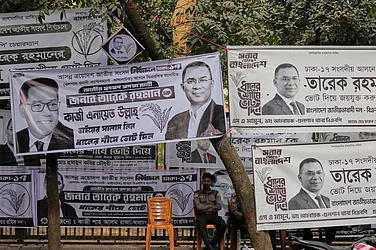Qatar has emerged stronger and more confident since holding the football World Cup last year. It pulled off one of the most dramatic games in recent memory — Argentina’s fluke defeat to Saudi Arabia, the Arab-African celebration of Morocco reaching the semi-finals, and finally Lionel Messi’s Argentina rising like a sphinx from the ashes to take home the trophy for the third time. What’s more, the final was one of the most memorable in recent World Cup history.
The games went off without a hitch despite the sceptics’ fears that tiny Qatar was incapable of holding such a massive international sporting event ever since FIFA announced that Qatar would hold the World Cup in 2022. The Arab state was subjected to relentless scrutiny and condemnation by the international media. Human rights became a major issue as many workers engaged in building the massive infrastructure faced terrible living conditions and some were not paid what was earlier promised. That also had to do with contractors back home who enticed workers with huge pay packets. Qatar and many in the Arab World saw this as the West’s prejudice against a tiny nation that dared to dream of hosting the World Cup with not much footballing tradition.
Qatar’s ruling family had always wanted to show the world that the country was capable of being as good as the rest. Qatar launched Al Jazeera which can compete any day with all other international television channels. It does not just cater to Qatar but to a much wider pan-Arab audience across North Africa and West Asia. As Qatar’s regional role is growing and as it becomes a more self-confident nation, it will not take allegations meekly.
And yes, there have been many linked to the World Cup. There have been widely reported charges of bribery, of buying the rights to host the games and Belgium has arrested four people, including the Vice President of the European Parliament, Eva Kaili, a Greek Member of European Parliament, for corruption. Raids conducted in several locations led to the discovery of $1.6 million in cash in slush funds. Allegations are that the money was paid to Kaili to support Qatar’s bid for the World Cup. Several FIFA officials are also under the scanner.
Following the investigations, Qatar officials have been denied access to the European Parliament on fears that once again money could be used to bribe MEPs to stall the corruption case now being taken up by Belgium authorities in Brussels. According to reports in the European press, the scandal is not just about football and also extends to Afghanistan where bribes were allegedly paid to help European nationals escape from the country under Taliban rule. Further details are not known so far.
Qatar has rejected all allegations of bribery and has instead played the victim card. Officials in Doha said that Qatar has been unfairly targeted and refused entry to EU Parliament with meagre evidence. Euro News quoted a Qatari official statement as as saying that the decision to impose “such a discriminatory restriction” before the investigation has ended “will negatively affect regional and global security cooperation, as well as ongoing discussions around global energy poverty and security”.
Qatar has given a threat to Europe to stop supplies of liquefied natural gas. Sitting on large reserves of gas, it has the world’s third highest reserve next only to Russia and Iran. With gas reserves of around 871,585,000 million cubic ft, Doha now has the option to take a strong stand against what it claims is unfair treatment.
Since the war in Ukraine, Russia is in the dog house. The United States has slapped unprecedented sanctions on Russia and all US allies have been asked to stop supplies from Russia. As the world’s largest producer of natural gas, Europe has so long been dependent on Moscow for its supplies. Europeans have vowed to reduce and finally stop all fuel purchases from Russia so as to dent President Vladimir Putin’s capacity to finance his war efforts.
Considering that Europe is desperately seeking alternatives to replace Russian gas, Qatar with large quantities of natural gas is in a position to call the shots. European governments are looking for alternative suppliers. Many have zeroed in on Qatar.
Hectic diplomatic efforts are on by France, Germany, and the EU to buy gas from Qatar. France had been first off the mark. France is collaborating with Qatar on long-term energy sector development. As early as the end of 2021, President Emmanuel Macron visited Qatar. A memorandum of understand on development and economic growth was signed during the visit. Though the Ukraine War had not started when Macron was in Doha, the situation has progressively become more tense after Russia’s annexation of Crimea in 2014. European leaders were concerned about Russia’s move since 2021 as the war of words escalated between Moscow and Kyiv.
In September, the EU inaugurated delegation offices in Doha to improve diplomatic ties with Qatar. The idea again was to promote long-term energy ties. Germany is also hoping to work out long term LNG supplies.
So far Qatar has merely threatened to stop sale of LNG to Europe without doing actually doing so. Much will depend on what the investigations finally reveal. Whatever happens, Qatar, smarting from what it believes is unfair treatment by the western media, will take a strong stand and present its side of the case to the world.



























